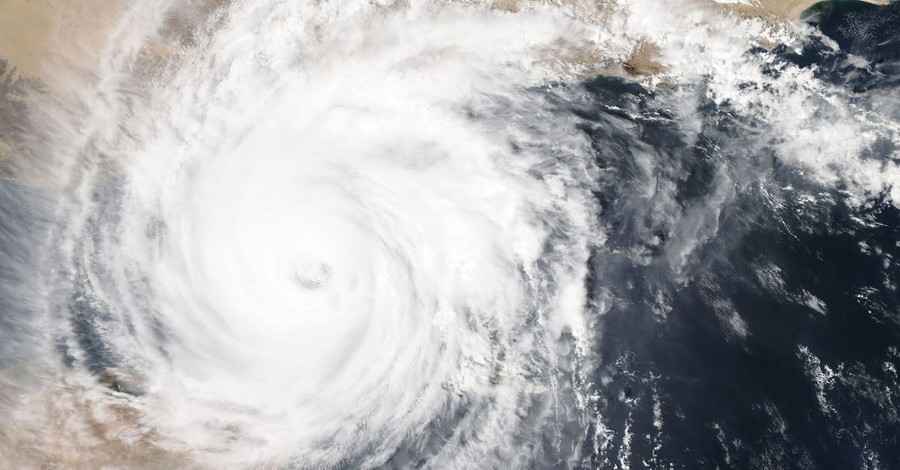

Tropical Storm Barry is causing a crisis on the American Gulf Coast. It is forecasted to make landfall along the Louisiana coast tonight or tomorrow and could strengthen into a hurricane beforehand.
Louisiana Gov. John Bel Edwards warned, “There are three ways that Louisiana floods: storm surge, high rivers, and rain. We’re going to have all three.” New Orleans’ Bourbon Street is already underwater.
Hurricane warnings have been issued and a state of emergency has been declared in Louisiana. The National Guard has been activated as well.
“Acts of God” make it hard to trust in God
Hurricanes, tornadoes, tsunamis, cyclones, volcanic eruptions, floods, landslides, wildfires, heat waves, and droughts affect close to 160 million people a year, killing around 90,000 annually.
So-called “acts of God” make it hard to trust in God. If your car broke down as often as our planet seems to, you’d blame the manufacturer. Since God not only made the universe but rules it as king today (cf. Psalm 9:8), many blame him for the suffering we face.
It’s worth remembering that we live on a fallen planet in which human sin has damaged God’s perfect creation (Romans 8:22). As a result, “the whole world lies in the power of the evil one” (1 John 5:19) who seeks only to “steal and kill and destroy” (John 10:10).
Of course, a theology lesson is seldom helpful to someone who loses their home to flooding or their child to leukemia. When my father died while I was in college and our oldest son was diagnosed with cancer a few years ago, intellectual explanations for our pain were not what our family sought.
What can God’s people do when crises come?
Tarot, astrology, and crystals
According to the Los Angeles Times, “a growing number of young people . . . have turned away from traditional organized religion and are embracing more spiritual beliefs and practices like tarot, astrology, meditation, energy healing and crystals.”
What these “spiritual beliefs and practices” have in common is their promise to change the world for those who practice them. These people are not seeking a pathway to a personal relationship with a personal God but are looking for ways to bend their circumstances to themselves.
It’s not surprising in a secularized, post-Christian culture that many people would turn to secular, post-Christian ways to deal with life on our broken planet. But Christians can offer a better path. We can reframe the crises of our day as opportunities to demonstrate our Father’s relevance to our world and its needs.
In fact, the more our culture embraces a secularized, post-Christian future, the more Christians should look to our past.
“They are reviled and bless”
Jesus warned his first followers: “In the world you will have tribulation” (John 16:33). How did they respond to the persecution they faced?
The Epistle to Diognetus (AD 130) said of them: “They are evil spoken of and yet are justified; they are reviled and bless; they are insulted and repay the insult with honor; they do good yet are punished as evil-doers. When punished, they rejoice as if quickened into life.”
Early Christians did more than respond positively to evil—they took to heart Jesus’ maxim, “Do good to those who hate you” (Luke 6:27).
Early Christians did more than respond positively to evil—they took to heart Jesus’ maxim, “Do good to those who hate you” (Luke 6:27).
Sociologist Rodney Stark: “To cities filled with the homeless and impoverished, Christianity offered charity as well as hope. To cities filled with newcomers and strangers, Christianity offered an immediate basis for attachments. To cities filled with orphans and widows, Christianity provided a new and expanded sense of family. To cities torn by violent ethnic strife, Christianity offered a new basis for social solidarity.”
In short, our spiritual ancestors viewed opposition as opportunity and crisis as an invitation to prove God’s love through their compassion.
When the world takes note
Hurricane Barry provides us the same opportunity today. As we pray hard for those in the path of the storm and for those who are serving them, as we donate funds and time to help, and as we look for ways to bless someone who is hurting in our community today, we continue the ministry of Jesus on earth. We show skeptics that our Father is real and our faith is relevant.
And the world takes notice.
Bryan Carter is the outstanding pastor of Concord Church in Dallas and my good friend. He is in the news today because of his church’s ministry to cohabiting couples. “Step into Marriage” offers them a free wedding, complete with a white gown, tuxedo, wedding bands, bouquets, and a post-wedding reception.
Pastor Carter officiates their services personally. A mentor from the church then shepherds the couple through their first year of marriage.
The couples must first complete eleven weeks of premarital counseling. Fifty couples have signed up for this year’s program. Pastor Carter estimates that eighty percent of the couples who have taken part in the program in the past have stayed married.
I read about this ministry not in a religious newsletter or the local paper but in the New York Times.
Who will you help in the name of Jesus today?
For more from the Denison Forum, please visit www.denisonforum.org.
The Daily Article Podcast is Here!
Publication Date: July 12, 2019
Photo Courtesy: Nasa/Unsplash











